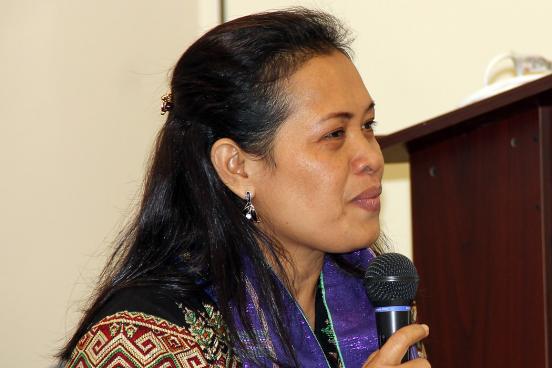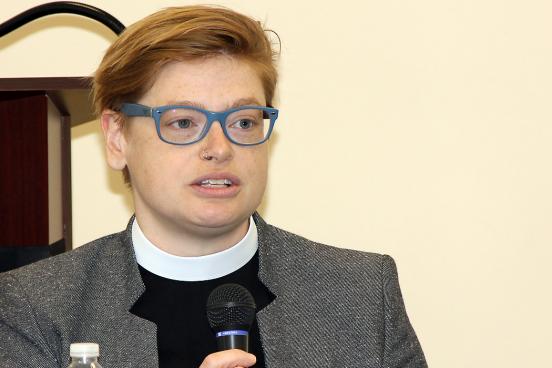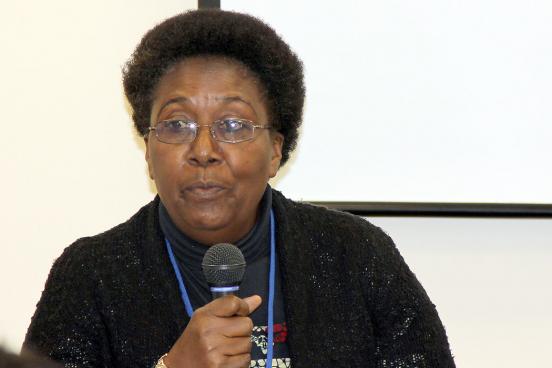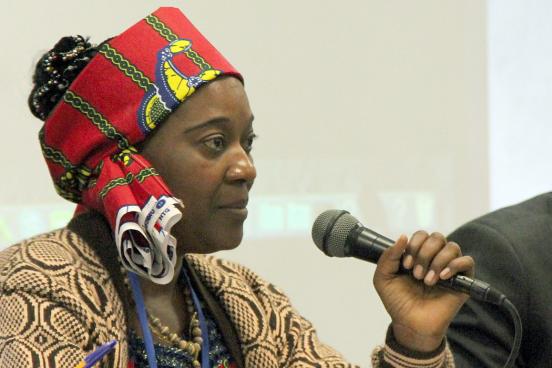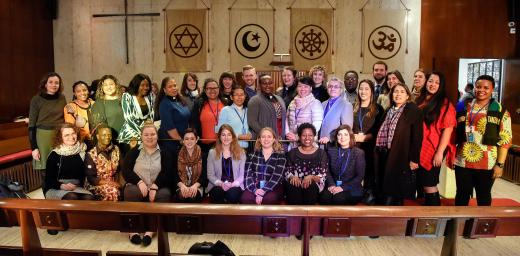Interfaith collaboration can reduce gender inequality
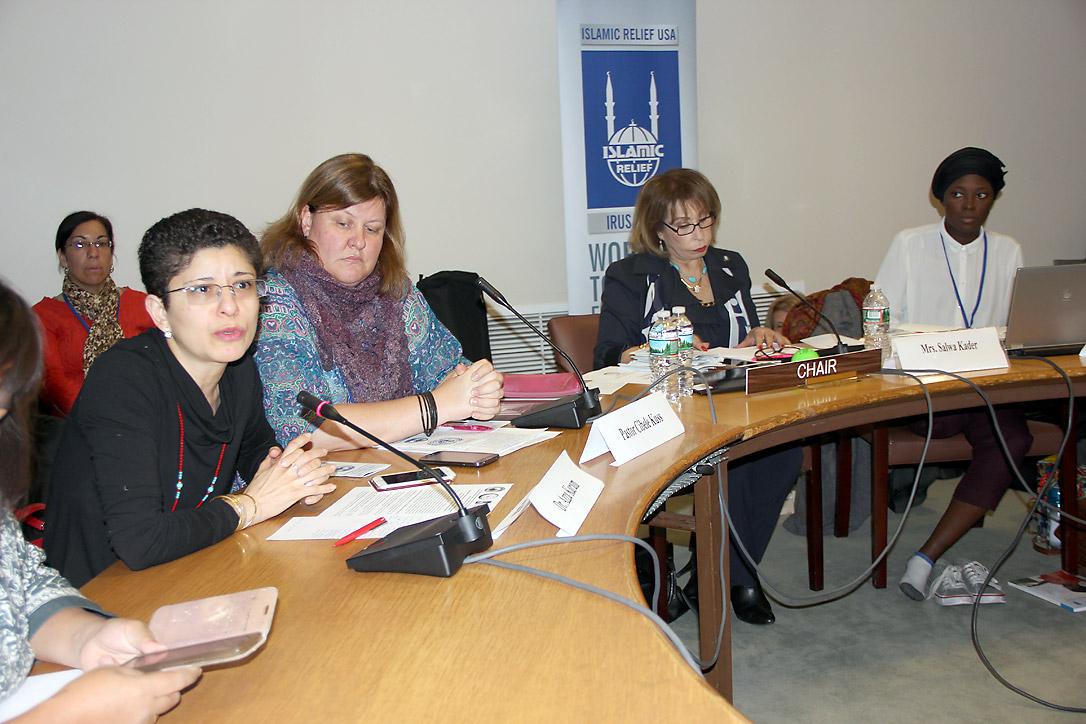
UNFPA's Dr Azza Karam (left, speaking) said the situation in Brazil, as presented by Rev. Cibele Kuss (right), highlighted the need to share experiences about religious intolerance across similarly affected countries in the South. Photo: LWF/C. Rendón
Religious fundamentalism threatens sustainable development
(LWI) – Collaboration between The Lutheran World Federation (LWF) and Islamic Relief Worldwide (IRW) has helped address gender inequalities and violence against women, delegates at the ongoing United Nations’ Commission on the Status of Women heard.
“The interfaith collaboration between LWF and IRW is a concrete example of articulation that goes beyond advocacy platforms. It plays a key role in addressing gender justice challenges,” Brazilian pastor Rev. Cibele Kuss said.
She was speaking at a side event of the Commission on the Status of Women on the role of faith-based organizations in implementing the Sustainable Development Goals adopted by world leaders last year.
Kuss and other LWF delegates at the 60th Commission on the Status of Women session, 14-24 March, are advocating closer collaboration between the UN, civil society and faith-based organizations on issues that affect women’s empowerment and sustainable development, the theme of this year’s meeting.
The UN Population Fund, World Young Women’s Christian Association and the United States Federation for Middle East Peace joined the side-event.
IRW gender advisor Sharifa Abdulaziz noted, “faith is an integral part of the social fabric and is considered by many as the major driver for change in local communities.”
A 2014 cooperation agreement between the LWF and IRW currently facilitates joint support to Nepalese who lost homes and livelihoods in the April 2015 earthquake and to Syrian refugees living in Jordan.
Kuss added that UNFPA supported the 2015 interfaith advocacy initiative, 16 Days of Activism against gender-based violence, which highlighted child marriage, its impact on girls’ education and the role of faith in these challenging realities.
Kuss, who is executive secretary of the Lutheran Foundation of Diakonia in Brazil and an LWF Council member, said racism, religious intolerance and other forms of discrimination enhance and reproduce gender inequalities in her country.
Racism, religious intolerance, and other forms of discrimination enhance and reproduce gender inequalities.
Groups targeted by injustice mainly include African descendants, indigenous people, and individuals and communities of different sexual orientation. She noted the escalation of violence toward these social groups is fueled by members of parliament who support Christian fundamentalists in the country’s changing religious landscape.
Dr Azza Karam, senior advisor for Culture at UN Population Fund, said the situation in Brazil reaffirmed her conviction of the need for mutual sharing of experiences about religious intolerance, particularly with a South to South perspective.
Concluding, Kuss said the 2013 LWF Gender Justice Policy helped the Lutheran Foundation of Diakonia develop a similar one in 2014. “It has been a major tool in ensuring that our own policies as faith-based organizations are based on gender justice.”


